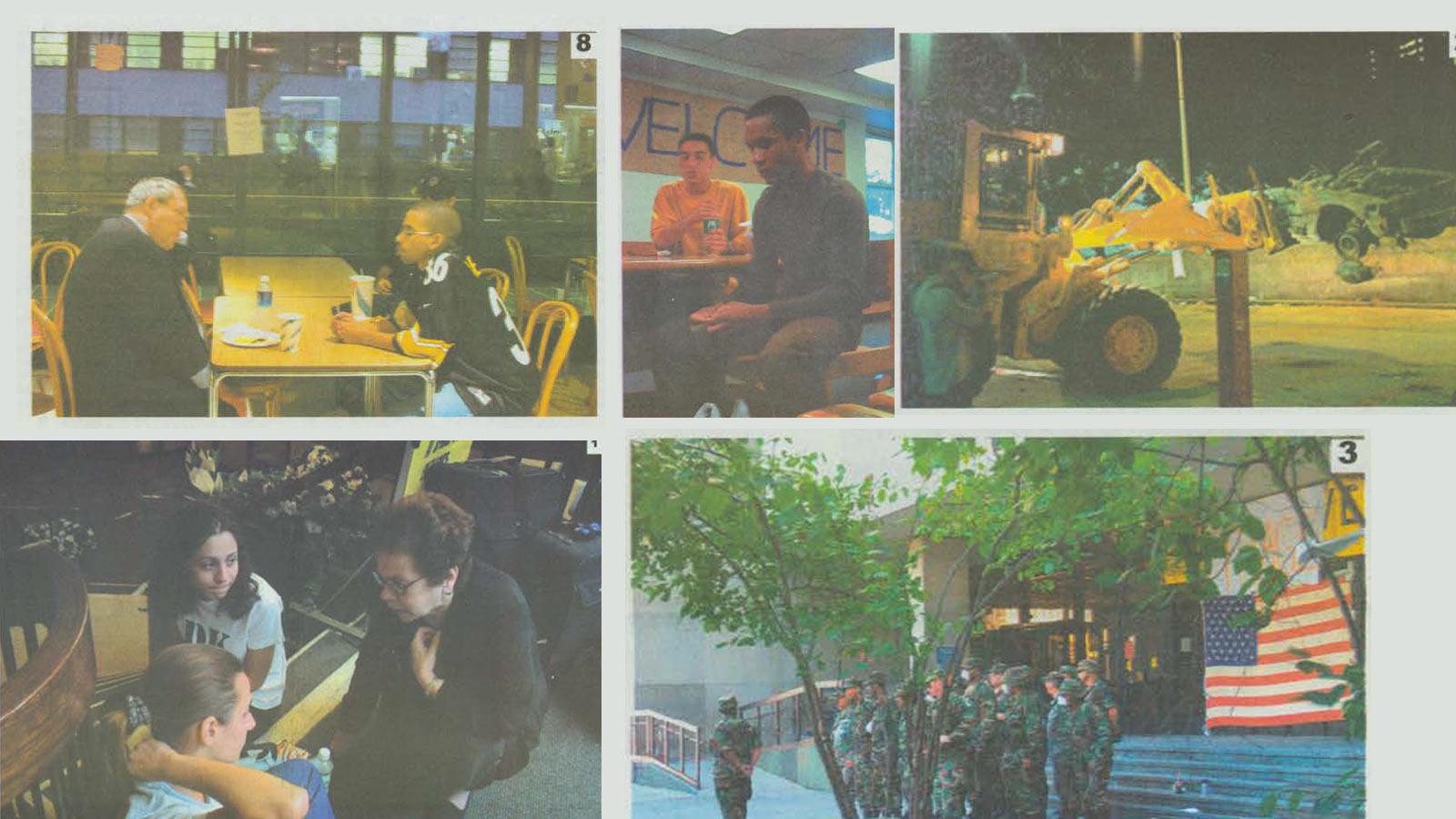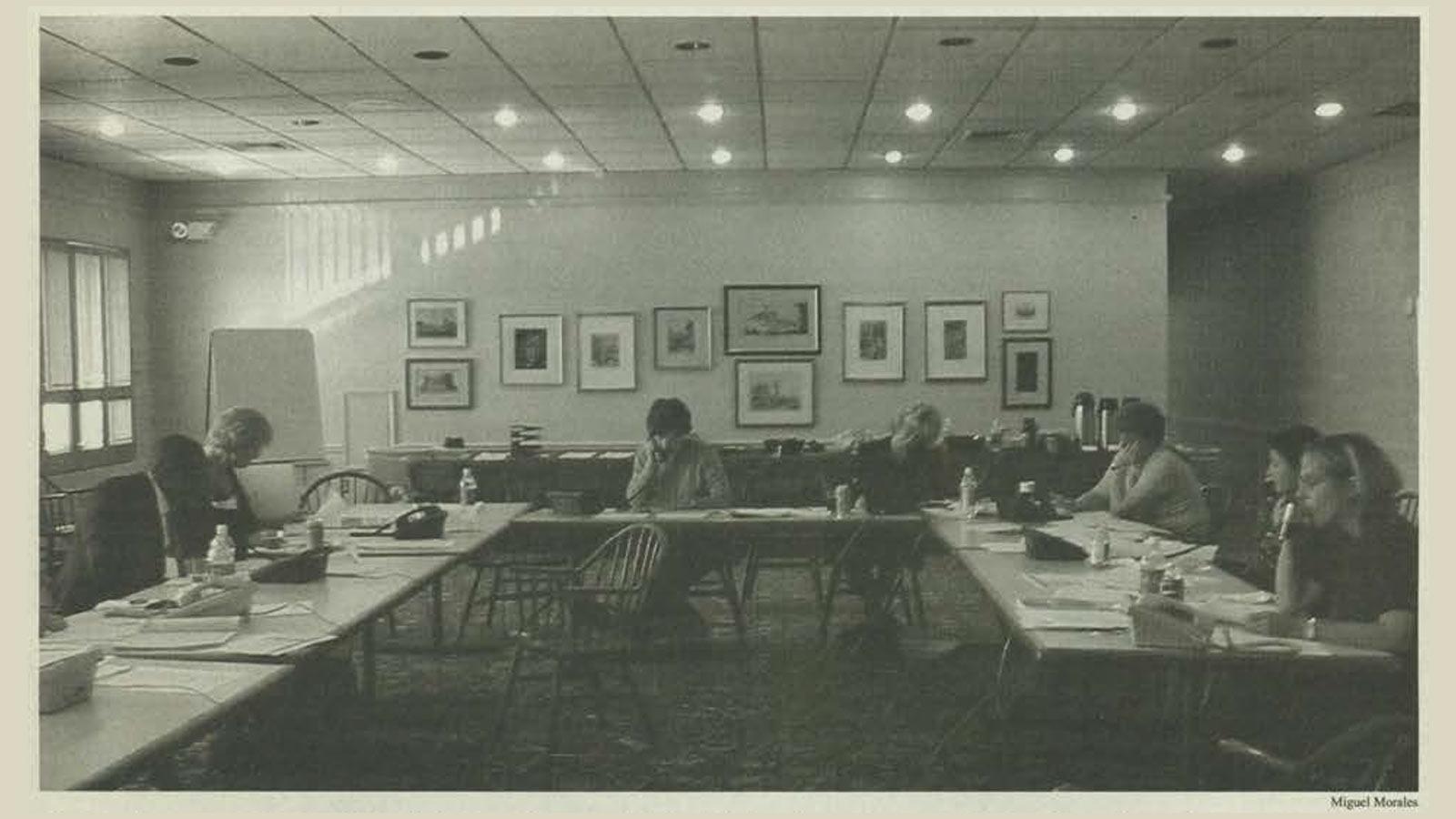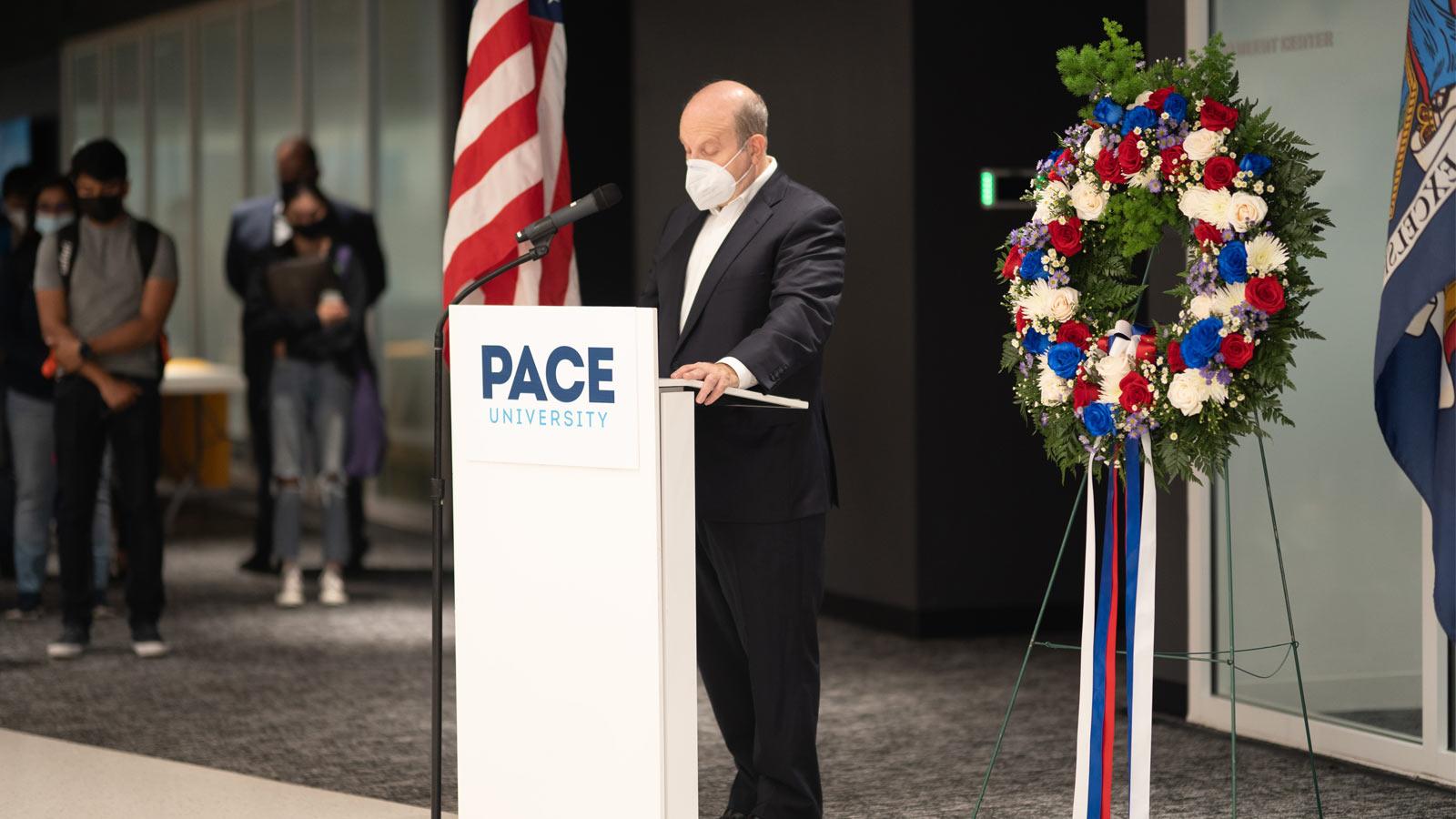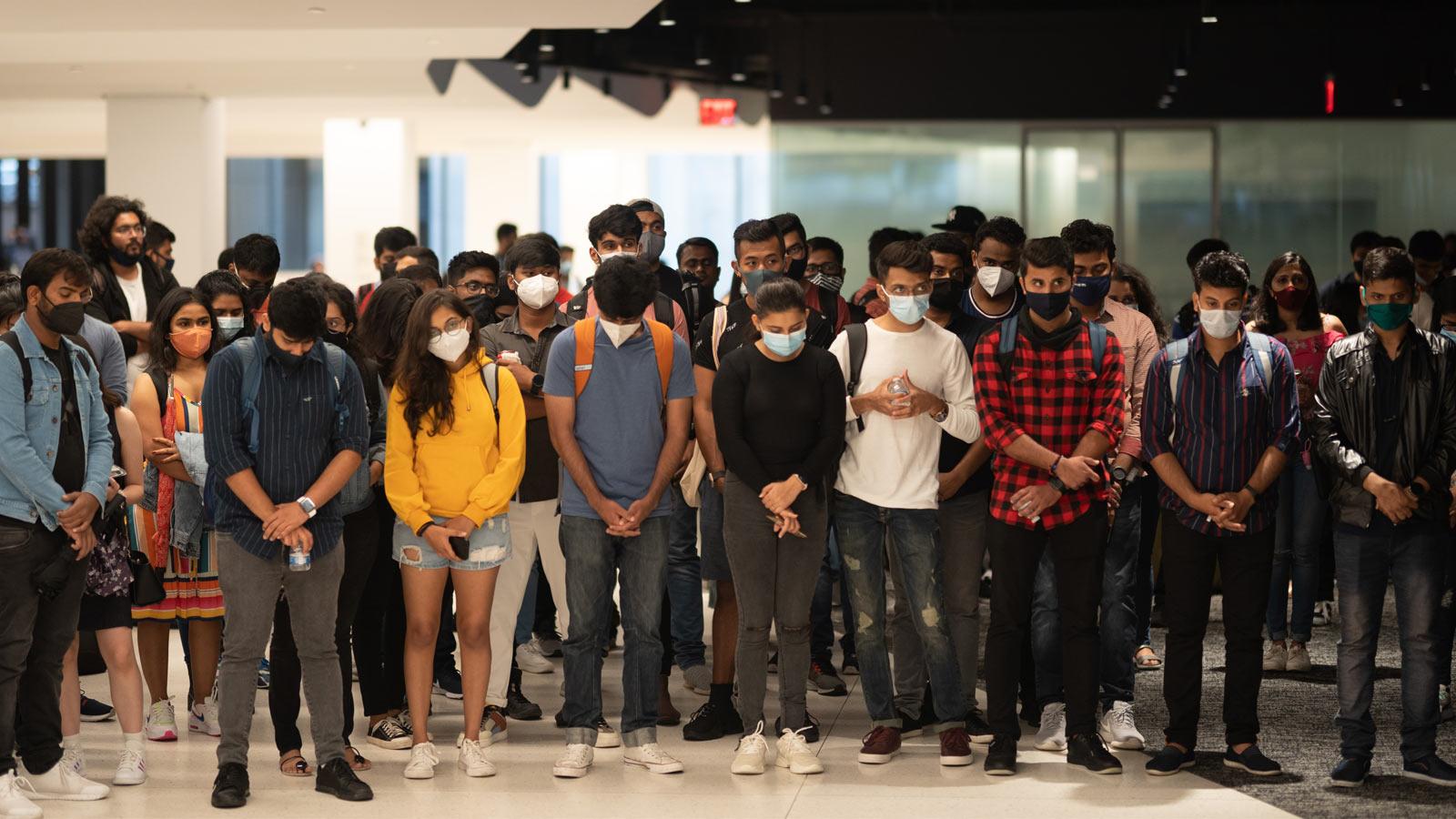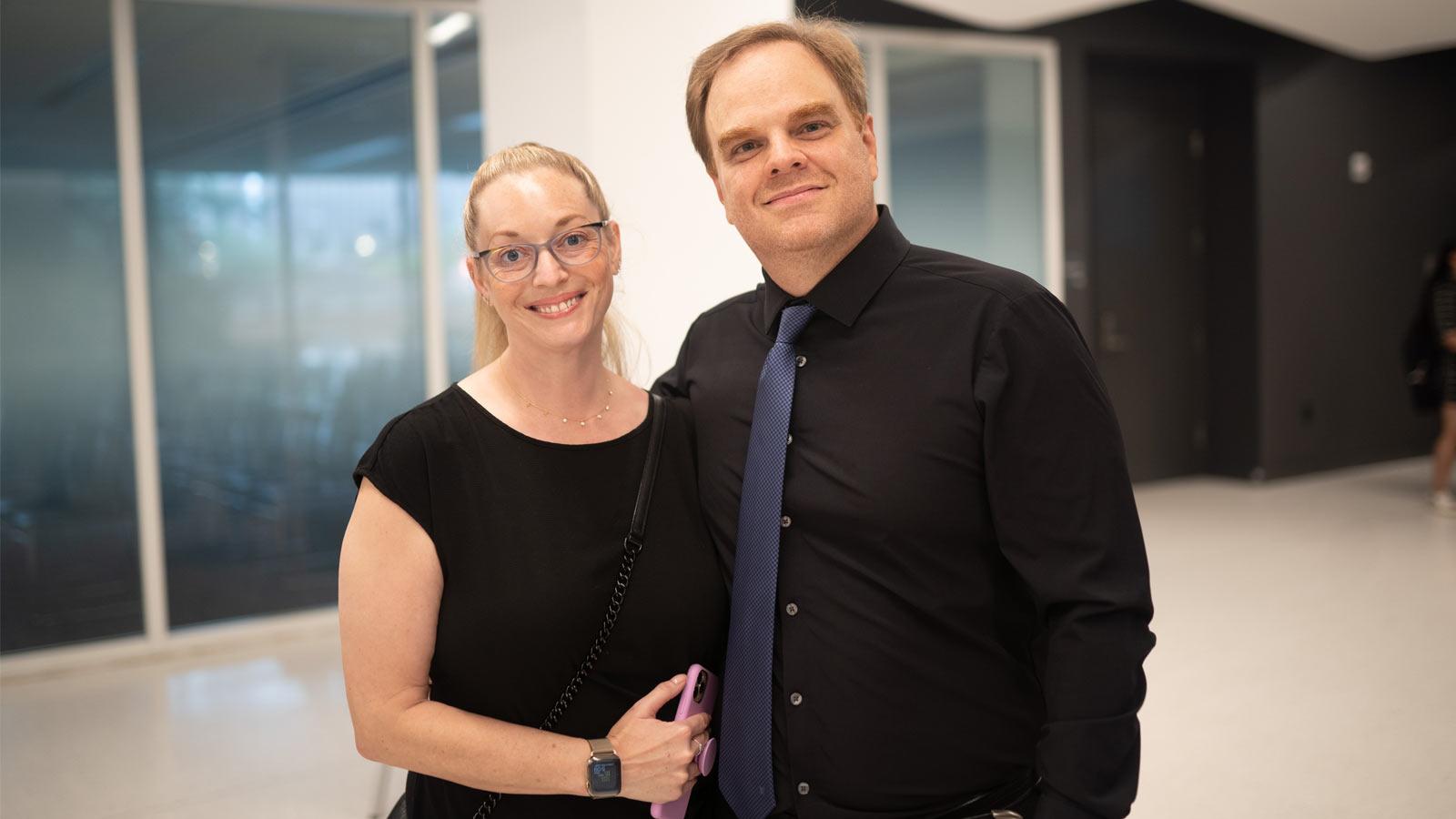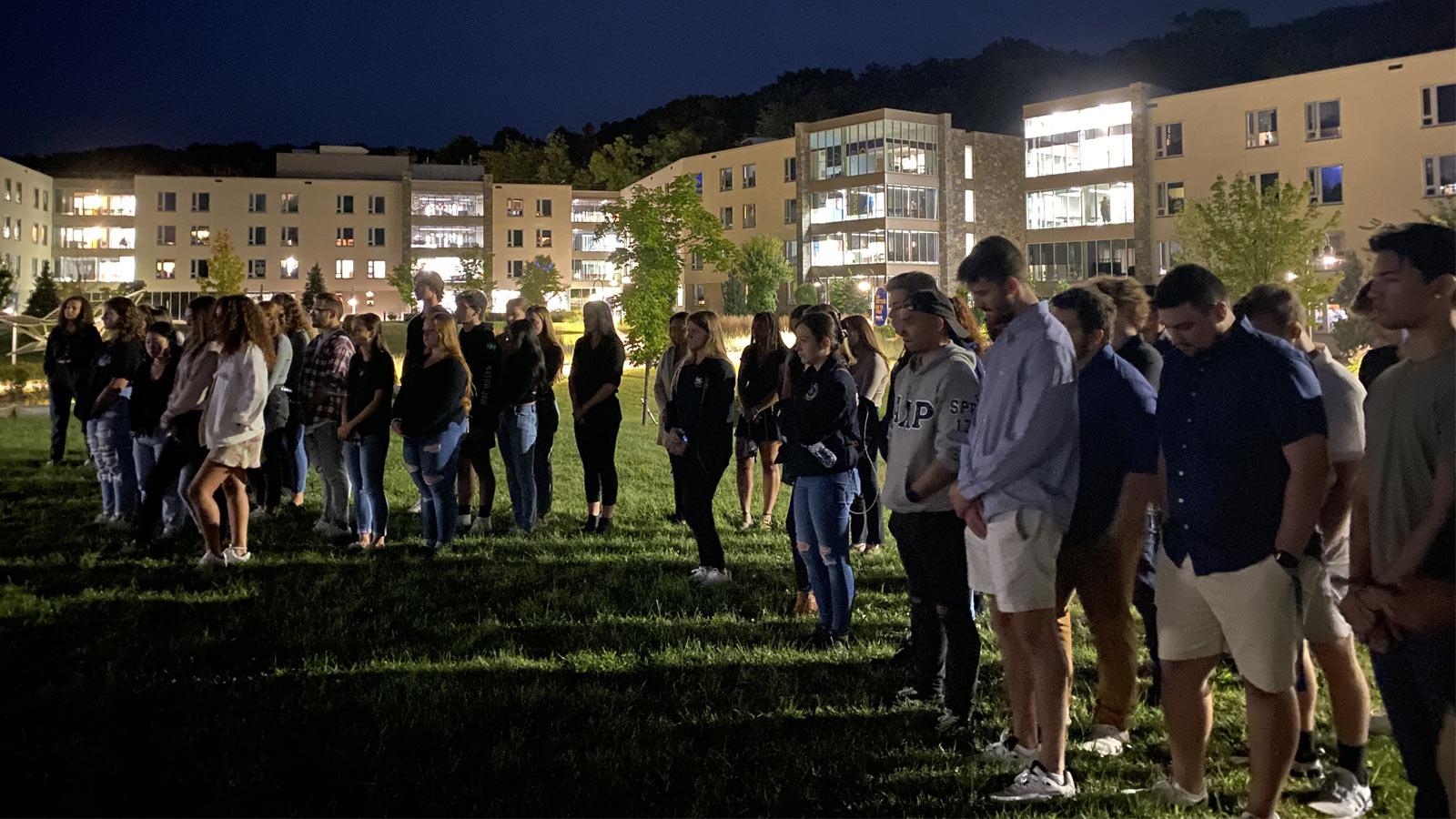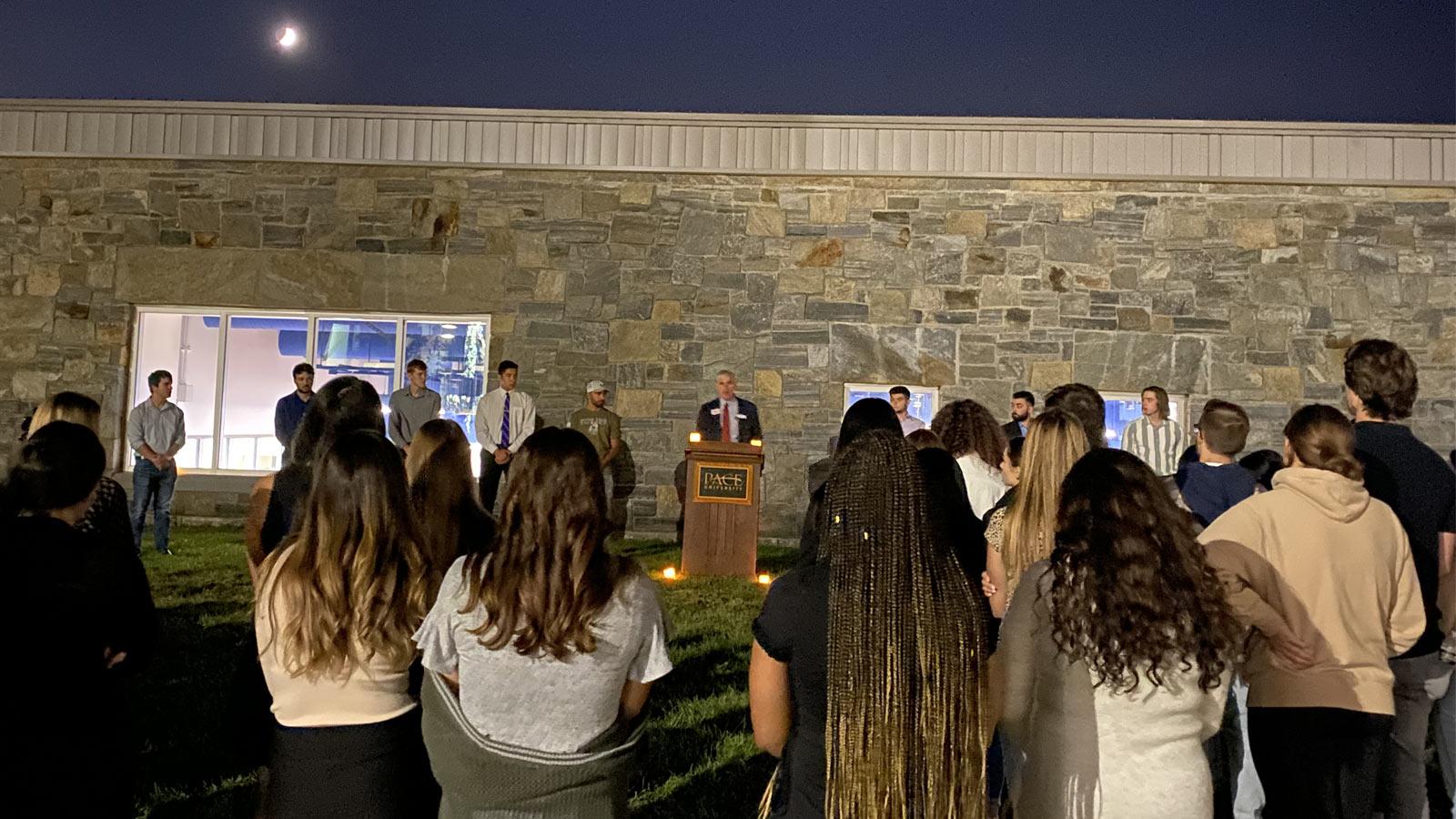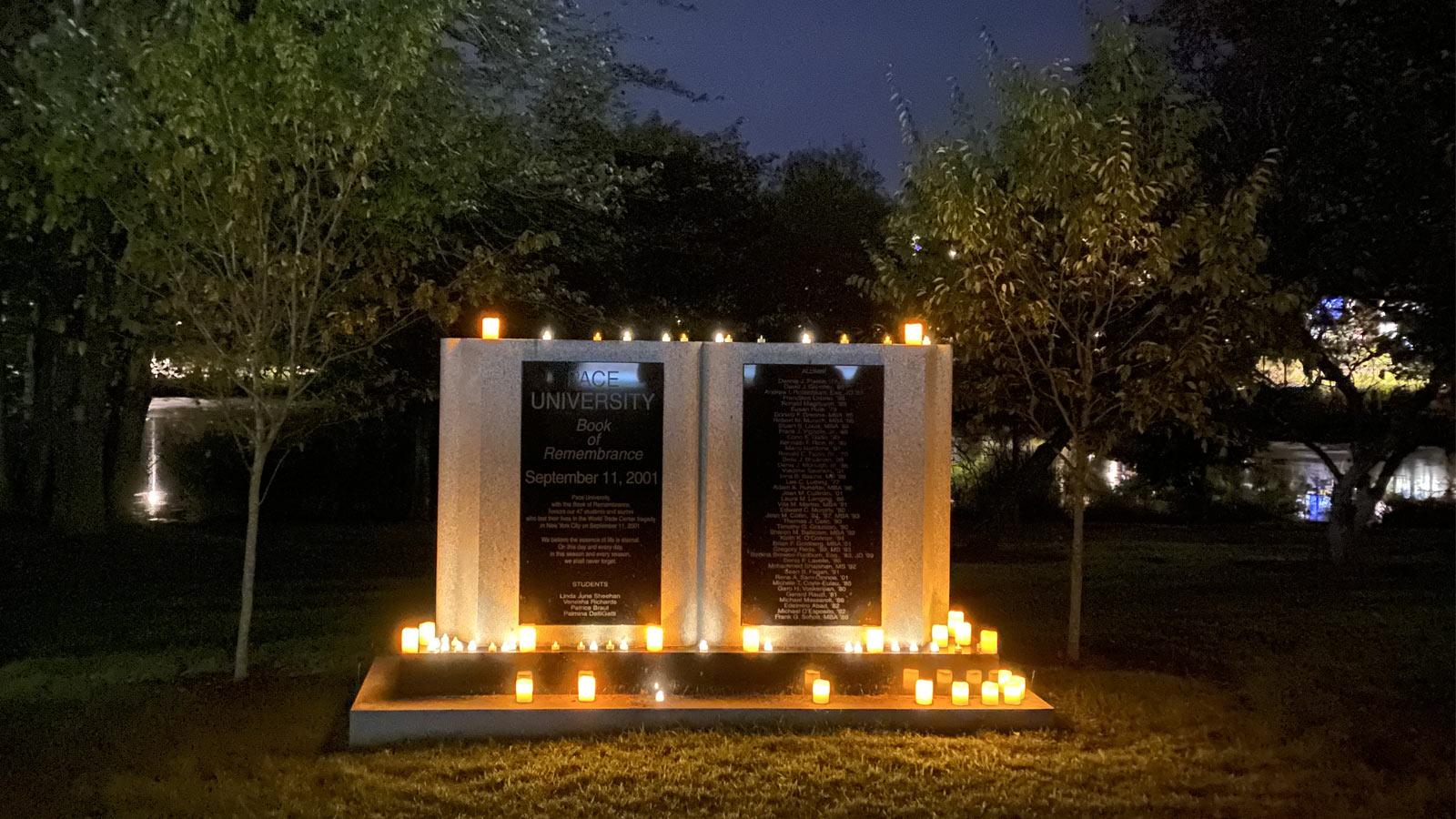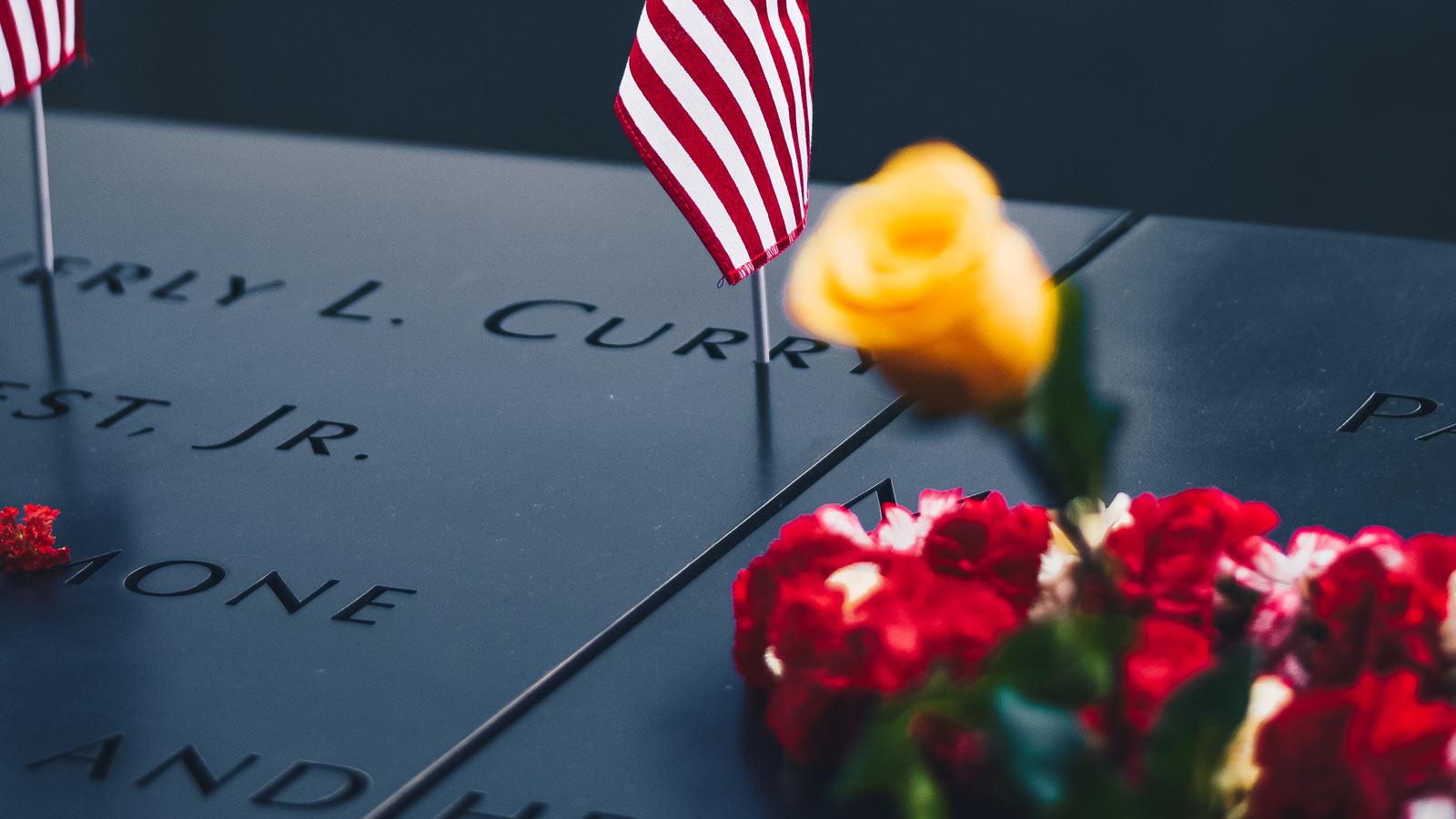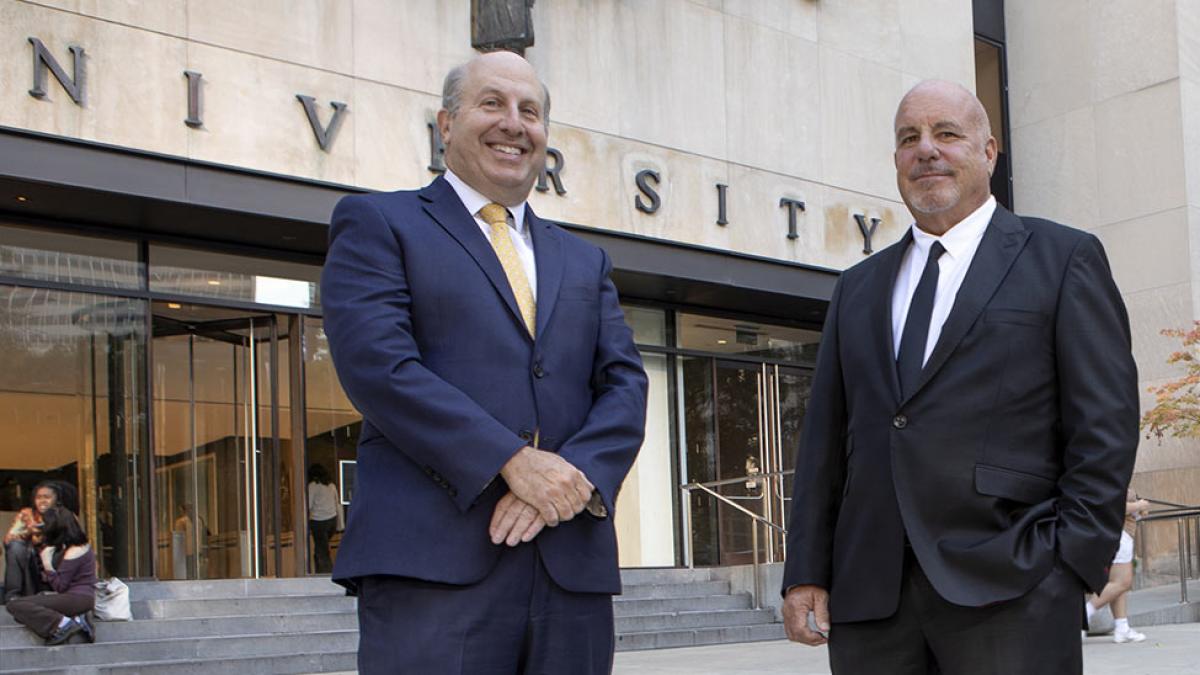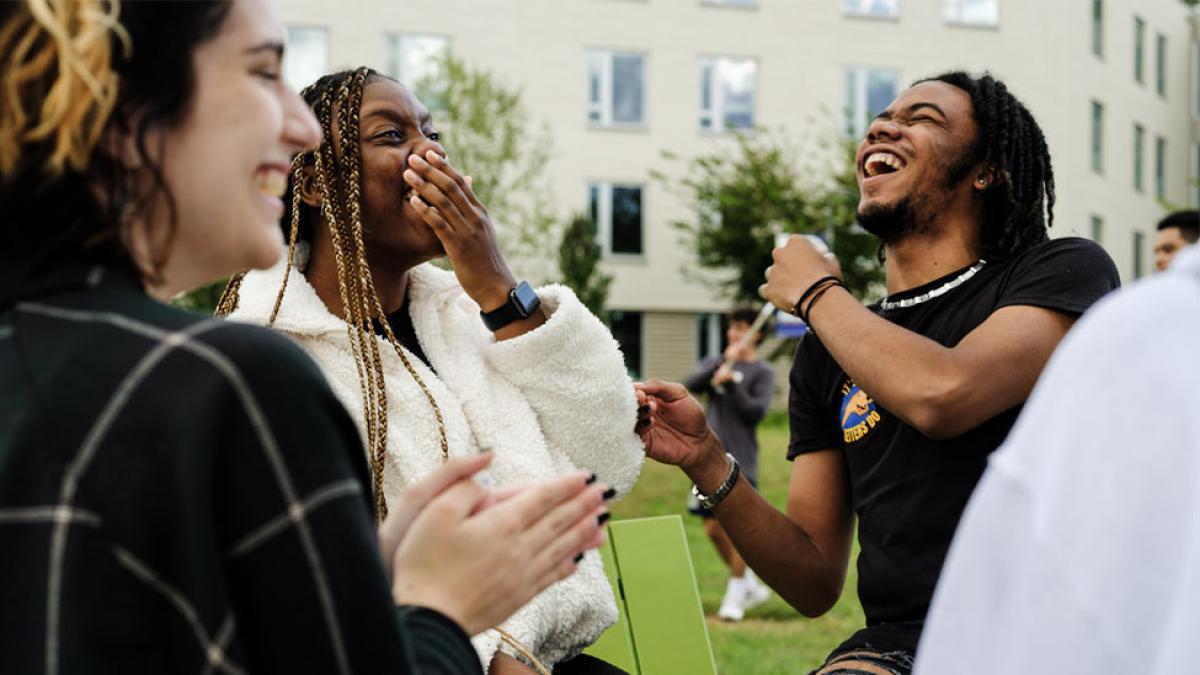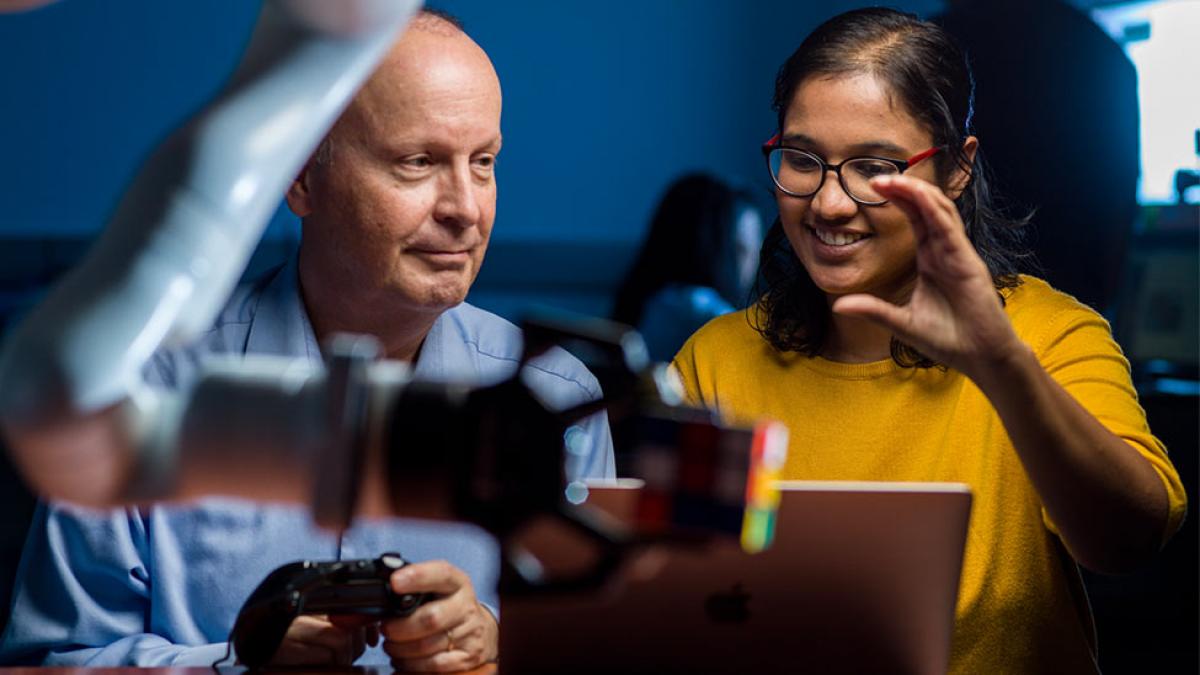In spite of the pandemic, Pace is marching ahead. With the continued transformation of the NYC Campus, new interdisciplinary academic programs, and a bright look to the future, Pace continues to thrive.
Twenty Years: Remembering 9/11
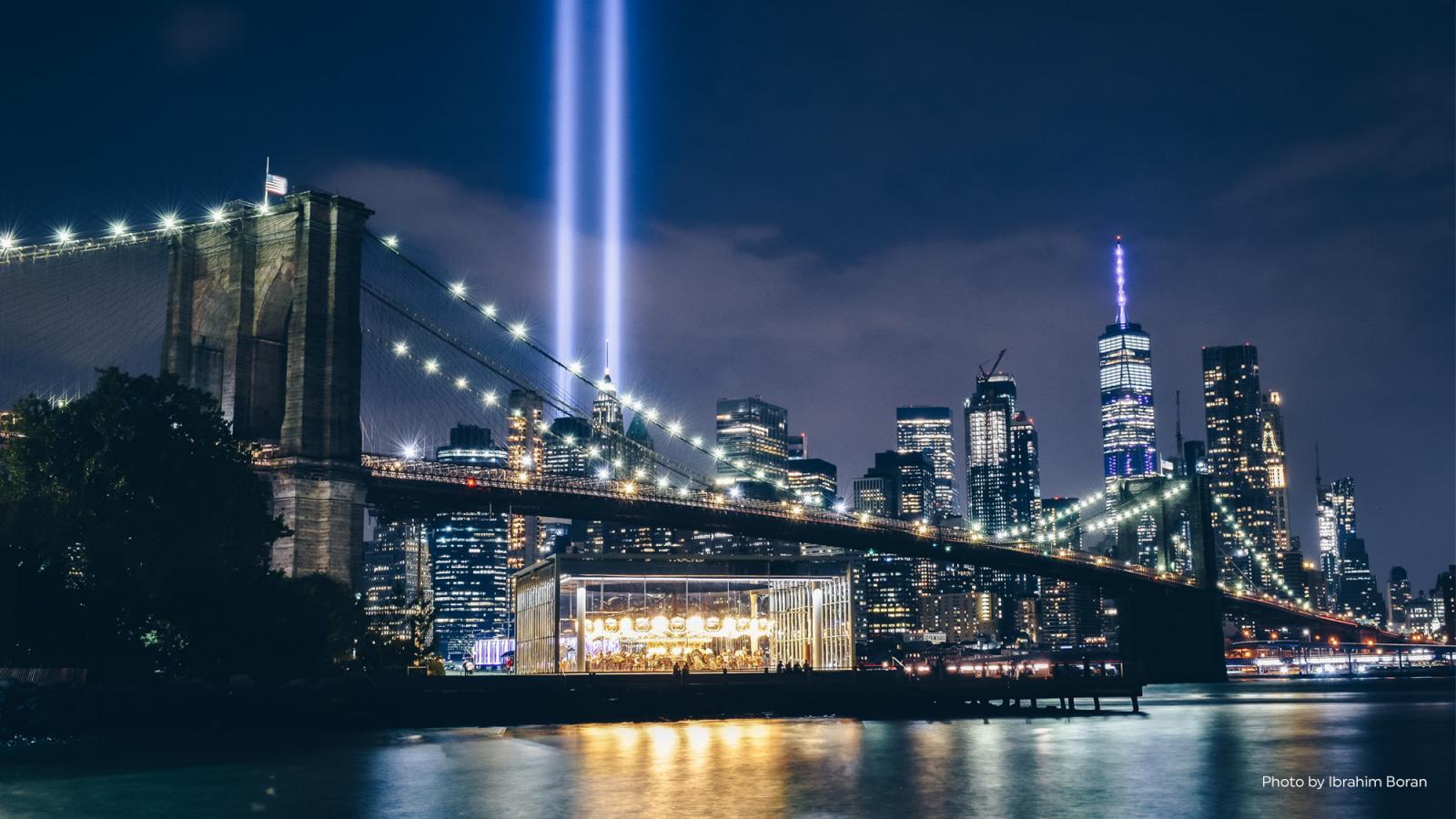
The events of 9/11 have had a profound effect on a generation of people around the world, but our University, located mere blocks away from the World Trade Center, felt the impact first-hand. Twenty years ago, the Pace Community lost 47 members—students and alumni alike—and was closed for several weeks as we worked toward recovery.
To mark the solemn occasion, we asked members of the Pace Community to share their experiences and recollections of the day and the time after. You can read their stories below. We also invite you to explore the Pace University 9/11 Oral History Project, detailing the timeline from the University’s perspective, housing audio interviews of first-hand accounts, and Pace student publications from the period.
Read
- Anthony Reinhart '05
- Marianne Cala-Perkins '03
- Michael Duffy '01
- Brynn Fallah '05
- Charles Binder '86
- James O'Sullivan '98
- Crystal Hartley '05
Listen and Explore
Explore the Pace University 9/11 Oral History Project curated by Professor Maria Iacullo-Bird, PhD, and archivist Ellen Sowcheck. Read the student newspapers from the days following September 11, listen to the interviews conducted by Pace students, and learn more about our on-campus memorials.
View
See images from this year's on-campus memorials, selected images from the 2001 student periodicals, and images of the National September 11 Memorial and Tribute in Lights captured by Pace student Ibrahim Boran '22. See the gallery.
Anthony Reinhart '05
Twenty years. Each and every moment exists as if it were yesterday. There's the moment I first heard the sirens. The moment I looked out my 13th floor window in Maria's Tower at the crystal clear blue sky and saw cars pulled over on the Brooklyn Bridge, people staring up past my dorm room at something with fright. Then there's the moment I turned the corner on my floor, looked out another window, and set my eyes on that tower—just blocks away—engulfed in flames, debris floating through the sky toward us. Wondering, "What happened?" Thinking, "That's going to be one huge hole tomorrow."
I can never forget the screams of my fellow floormates as the second Tower was hit and running down to the 12th floor, staring out the window in Kristen and Krystal's room. Unable to comprehend all that was happening, I actually shuffled over to my first class of the day— math on the 3rd floor. Students lined the hallway, looking out the windows in disbelief. I soon decided to return to the dorm.
A short bit later, there was Dean Marijo Russell-O'Grady, maintaining her forever calm self, standing at the Security station of the Spruce Street entrance. Krystal and I went to step out onto Spruce Street. We didn't know it then, but at that moment the first tower collapsed. A stampede of people rushing out of Pace combined with a rush of people running down Spruce Street instantly separated us. I can still picture a guy on Spruce Street turning to me and saying "The top of the building fell off," and the one who ran full speed right into a parking meter as he raced against the cloud.
Then the miracle I experienced that day—my guardian angel placing my dad right there, at Gold and Spruce, at the very moment my 17-year-old self arrived at that corner.
Then the miracle I experienced that day—my guardian angel placing my dad right there, at Gold and Spruce, at the very moment my 17-year-old self arrived at that corner. There's the fear I had as we stepped onto the Manhattan Bridge, and the sadness as we watched the second Tower fall. There is the street corner in Brooklyn where we stopped to join a crowd gathered around a car to hear the radio, unsure if more planes were out there. Having walked for miles, the payphone we used to call my grandparents; and the moment they arrived, Nana with tears in her eyes, as they drove us back to their house. Watching the news reports, in total disbelief of what we had been witness to that morning, and then starting to realize that so many heroes ran into those buildings, never to walk out. The shock of hearing how much death and destruction had been caused.
They say never forget. I won't forget. I can't forget. It's there. Seared in my memory. Forever.
Marianne Cala-Perkins '03
I had just started an MBA program at Pace. It was my second day of classes. I got off the subway at Brooklyn Bridge/City Hall on the 4/5 line at around 8:40 a.m. and realized that I took the wrong exit at the platform. It took me a minute to realize where I was. I saw Pace University and was about to cross the street when I heard the explosion.
I immediately looked up and saw what appeared to be an outline of a plane in the North Tower of the World Trade Center. I remember the shocked expressions of those pedestrians around me. I stood there for several minutes just watching papers flying out of the North Tower. I remember hearing sirens and seeing a fire truck go down the street I was about to cross.
I proceeded to Pace University and students in the hallways were talking about the plane that just hit the World Trade Center. I walked to my international business class and then got word that another plane had just hit the World Trade Center. Some of the students seemed calm while others were visibly shaken and left. Then our professor walked in. I don’t remember her name, but what I do remember was that she was trying to stay calm. She told us she would not be teaching today and would just go over the syllabus and the goals of the course. She made it clear to us that we could leave if we want. She ended the class very early.
I walked out of the classroom into the hallway unsure of what to do. Immediately, I saw a student run up to another student and say that a plane had hit the Pentagon. I stopped because I saw people in a room standing around a television. The headline was “America Under Attack.” I started watching amongst the crowd. After a number of minutes, I felt the building vibrate and I could hear someone say “What was that?” Which was exactly what I was thinking. Then someone screamed, “The World Trade Center just fell!” That moment was the most frightful moment of the day for me. I had no idea what was about to happen to the rest of lower Manhattan.
Within a few seconds, a man instructed everyone to head down to the basement and we all started to take the stairs down. To this day, I do not know that man’s role at Pace University but I remember that he was calm and authoritative. We all headed to the basement where I spent the next few hours. There was a television in the basement and we learned the subway lines were all suspended. I wasn’t able to get home to Astoria, so I called home (collect) as soon as I could get to a payphone. My father was home and I let him know that I was okay and would wait until the subway lines were running to head home. I went to the cafeteria to get something to eat for lunch and I remember seeing members of the FDNY quietly eating lunch.
I will always remember Pace University opening up its cafeteria to the FDNY, the moments of silence my professors held almost two weeks later when classes resumed and last but not least, how Pace University helped me feel safe and secure on that terrifying day.
Pace University gave out face masks and I still have mine from that day. I got home around 5:30 p.m. and soon after, my family and I ate our dinner in disbelief and shock from the day that would change our country forever. When I think of September 11, like most New Yorkers and Americans, I think of the fear and shock, the tragic loss of lives, and the subsequent grief. But I will always remember Pace University opening up its cafeteria to the FDNY, the moments of silence my professors held almost two weeks later when classes resumed and last but not least, how Pace University helped me feel safe and secure on that terrifying day.
Michael Duffy '01
It was a beautiful blue sky day. I was working for Oxford University Press at 35th and Madison. When both planes hit, I walked down to 5th Avenue to watch the scene unfold, and then solemnly walked over the 59th Street Bridge into Queens.
Walking across the bridge with the smoke of the collapsed buildings in the distance, I looked down at the t-shirt I wore that day after taking my work shirt off. Printed on the t-shirt was the Twin Towers, for the Yankees-Mets Subway Series.
I went to bed that night not expecting to wake up the next day. But when I did, I couldn’t come to terms. On 9/11, I felt out-of-body and dissociated. It didn’t occur to me that people had died, that the planes and buildings were occupied; like no one ever walked into the buildings.
It’s 20 years later, and I just haven’t come to grips with it. I have suffered from survivors’ guilt. I couldn’t listen to planes overhead. NYC is difficult for me to visit. But I have been to the 9/11 Memorial and it’s a beautiful display of emotion. The fountains are a good representation of the people and their memory. I send love to everyone affected, always.
Brynn Fallah '05
September 11, 2001 was my second day living in NYC and attending Pace. I had spent my freshman year at a rural school in Pennsylvania and transferred to Pace my sophomore year to stretch my life experience and have full access to the city while getting an education. I didn’t get housing, so I commuted from Connecticut my first couple of weeks. My dad and I finished moving me into an apartment on the corner of John and Gold the night of September 9 and so I began my independent journey as a New Yorker.
The morning of 9/11 I didn’t hear a thing but my phone ringing repeatedly. It was a friend checking in to see if I was okay. We got cut off. Phone lines were such a mess that day. I showered quickly and had a rock in my stomach. I didn’t have internet or a TV yet so I had no idea what was going on. I threw on some clothes and went outside to see the Towers standing, but burning. My 19-year-old mind could not comprehend. Could anyone’s?
At first we all thought it was a horrible accident. People who weren’t right there had more access to news and information than we did. I hadn’t made friends at school yet, so I had no one to go to or be with. The impact of being alone and so deeply fearing for my life and the lives of others has stayed with me 20 years later.
The impact of being alone and so deeply fearing for my life and the lives of others has stayed with me 20 years later.
I fled when the Towers fell. Everything went dark and I ducked into a building lobby. Eventually I found my way back to my own building and I stayed there for much of the day. That evening I walked across the Brooklyn Bridge to a friend’s cousin’s home, who I had never met. The next morning, my dad came to get me and we stayed in Connecticut until Pace reopened. We were so hopeful that Pace would be used as a triage for survivors. We now know how few were ever found, of course.
I never recovered if I’m being honest. That year I barely went to class, I barely slept, I never took public transportation out of fear of other attacks, and I didn’t make any friends. I’ll never know why and will always regret that I didn’t ask for help at school. Now I know I was experiencing PTSD, but I was full of shame because there were so many others who were impacted more than I was.
I graduated in 2005 and did get myself into therapy to recover from that trauma. My degree was in applied psychology and human relations, and I proceeded to get a master’s degree from Hunter in school counseling. Today I coach districts and schools in Delaware to integrate mental health and social emotional learning into a multi-tiered system of support framework. I collaborate with state leaders to prioritize trauma training to support all students statewide. Thanks for letting me share my story.
Charles Binder '86
I was 11 years into my career with the US Coast Guard Reserve, stationed at Fort Wadsworth on Staten Island. On September 12, I was called up to active duty which would ultimately last for two years. During that time I was assigned to the new Sea Marshall Program to intercept vessels that may have been involved with illicit cargo, human trafficking, and other security risks to inspect them with a tactical team and either clear them or refuse entry into the Port of NY and NJ.
After being discharged, I was selected for the new Intelligence Specialist rating to use my skills to ascertain various threats to the port. I eventually retired as a Chief Intelligence Specialist after serving 25 years. The last 15 years of that career was changed dramatically due to the events and subsequent reaction to 9/11 in ways that I had never imagined.
James O'Sullivan '98
I was a police officer assigned to the Bronx. I was off that day living at home when my father came in and said "They crashed a plane into the World Trade Center.”
I got up and put the TV on in time to see the second plane hit. I knew it was bad. I reported to work and wound up going down to the site later that evening. I remember how everything was covered in ash and how quiet it was, like after a heavy snow. I remember looking at Pace Plaza and not even realizing that was where the campus was located (I had been a Pleasantville student).
I remember how everything was covered in ash and how quiet it was, like after a heavy snow.
I can remember that whole day from waking up to going home the next day. Fast forward 20 years later and I am a proud member of the faculty of Pace University, and have been teaching in the criminal justice program for the last ten years.
Crystal Hartley '05
I was a freshman at Pace University’s New York City Campus and was living in Maria’s Tower. On the morning of September 11, I was asleep when I heard a loud boom. I didn’t think much about it because during the night there were thunderstorms. I began to hear a steady stream of sirens and I was awoken by somebody rushing into my room telling me that the World Trade Center was on fire. We all ran to the lobby of our dorm floor and stared out the windows facing the World Trade Center. The news was on in the background and it seemed that the media was just as confused as we were.
We saw a second plane approaching and my first instinct was that it was going to be pouring water on the tower to stop the fire. As the plane approached we knew that something was off and the next thing you knew, it flew through the second Tower, causing an explosion that looked like it was going to hit our building. At that moment everybody started screaming, running around, not knowing what to do. I quickly got dressed and ran downstairs; some people were running into the building, some people were running out of the building. Outside, everything was covered in dust and people were running toward the Brooklyn Bridge. I witnessed people jumping out of the WTC—it was the most gut-wrenching thing I’ve ever seen.
Once we realized our building was stable, I ran back inside. I found my way into Pace’s Financial Aid offices where I was able to call my mother. On the phone with her, I just cried because I honestly didn’t know what was going to happen to me, but I wanted her to know I was safe at that moment. I told her I would try to call her again once I knew what was happening. Just then, the second tower collapsed.
In the chaos, I saw people coming together to help others; trying to gather supplies and debris to build stretchers.
Everyone around me was going crazy; someone yelled they smelled gas and again we ran outside. It was like the apocalypse. In the chaos, I saw people coming together to help others; trying to gather supplies and debris to build stretchers.
At some point that day, I remember being in the auditorium being told that Pace was trying to get buses to take students to the Pleasantville Campus the next day and if we did not wish to go we had to find our own way out of the city. I went back to my dorm and made arrangements with my step-father to come to the city to bring myself and a few other students back to Pennsylvania.
As night approached and the electricity went out, things seemed to go silent except for a steady high pitched sound that lasted through the night. I later found out that noise was coming from PASS devices, a loud audible alert to notify others in the area that firefighters were in distress.
The next morning I gathered my belongings, found the other students who were coming with me and headed outside in hopes of being able to get out of NYC. Nothing prepared me for what I saw. Outside, there was an army vehicle of some sorts, with an armed man lying on top. As we walked by, we all took in the scene—it did not look like lower Manhattan; it looked like we were transported to a war zone. We continued our walk north to Midtown where we took a Red Cross ferry to New Jersey. We waited there for six hours until my stepfather was able to pick us up.
As we walked by, we all took in the scene—it did not look like lower Manhattan; it looked like we were transported to a war zone.
After several days of being home, we received word that we were allowed to return to campus. I knew that I had to return and so back to Pace I went. The months following were a blur; it seemed like all of my classes all we did was discuss our experiences and listen to one another. I got used to wearing a mask, having air purifiers in rooms, not being able to open windows. There were groups that would go out in the evening and walk down to the fire station and sing and thank them. Eventually, things started to feel like we were getting back to some sort of normalcy. I graduated in 2005 and moved back to Pennsylvania.
September 11, 2001 changed me forever. I can close my eyes and relive all of those events. It has been 20 years and I still can’t talk about it without crying. It’s hard for people to understand what it was like for a freshman who was excited to start school and be in a big city with big dreams, and within a few days you are fearing for your life. I know I am extremely fortunate that I am alive and that I wasn’t harmed or lost a loved one.
More from Pace Magazine
A return to normal never felt so good! Pace's campuses are buzzing with activity and New York is coming alive after nearly two years of life during a global pandemic.
At the intersection of Pace’s strategic priorities and opportunities for outstanding academic growth comes the drive to move Pace forward. We're meeting the challenges facing higher education and putting our unique positioning and competitive advantages to work, strengthening our reputation as we move into the future.
